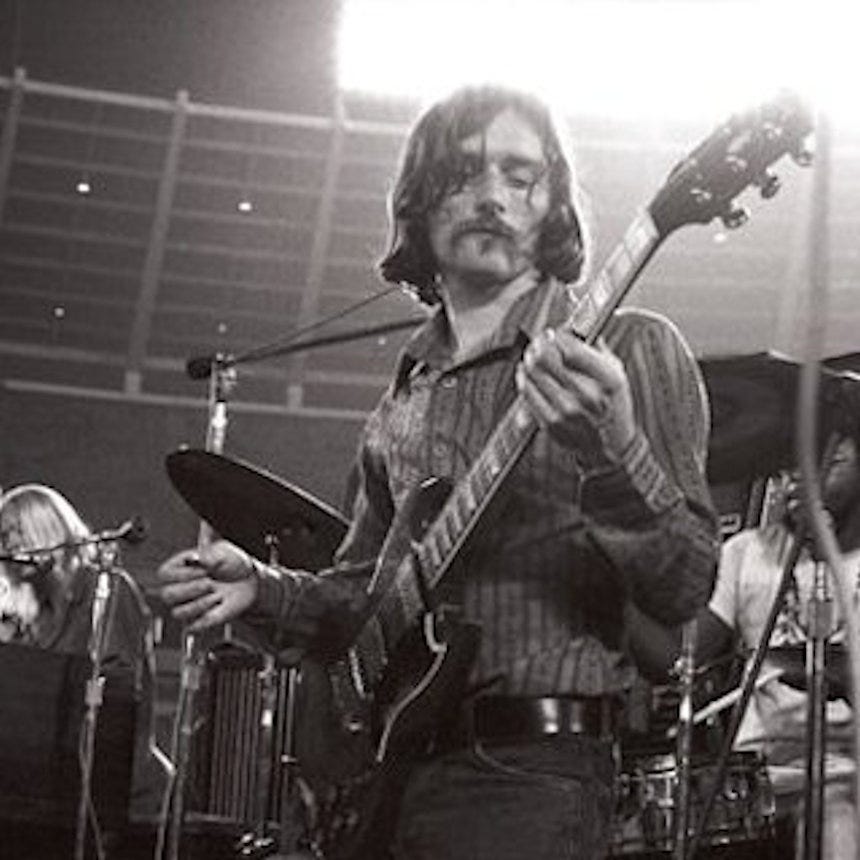The Life And Career Of Dickie Betts
Dickey Betts is a renowned guitarist and songwriter, best known as a founding member and key contributor to the iconic Southern rock band, the Allman Brothers Band.
His distinctive guitar style and songwriting abilities played a pivotal role in the band's success and enduring legacy. Here's a detailed history of Dickey Betts' life and career:
Early Life and Musical Roots (1943-1969):
Dickey Betts, whose full name is Forrest Richard Betts, was born on December 12, 1943, in West Palm Beach, Florida. He developed an early interest in music, particularly the guitar, and was influenced by country, blues, and rock 'n' roll. Betts honed his guitar skills by playing in local bands throughout his youth.
Formation of the Allman Brothers Band (1969):
In 1969, Dickey Betts joined forces with Duane Allman, Gregg Allman, Berry Oakley, Jai Johanny "Jaimoe" Johanson, and Butch Trucks to form the Allman Brothers Band. This collaboration marked the beginning of a groundbreaking musical journey.
Musical Contributions and Songwriting (Late 1960s - Early 1970s):
Dickey Betts' guitar work in the Allman Brothers Band was characterized by his melodic and fluid playing style. He contributed some of the band's most iconic songs, including "Ramblin' Man," "Jessica," "Blue Sky," and "In Memory of Elizabeth Reed." Betts' compositions often incorporated elements of country, blues, and jazz, adding diversity to the band's repertoire.
Live Performances and Dual Lead Guitar Attack:
One of the defining features of the Allman Brothers Band's sound was the dual lead guitar attack of Duane Allman and Dickey Betts. Their harmonious and dynamic guitar interplay was a hallmark of the band's live performances and recordings. This synergy set them apart from other rock bands of the era.
Personal and Creative Challenges (1970s - 1980s):
The Allman Brothers Band faced personal and creative challenges during the 1970s, including the tragic deaths of Duane Allman and Berry Oakley. These losses took a toll on the band's cohesion, and they disbanded in 1976. Dickey Betts pursued a solo career during this time, releasing albums and touring.
Reunion and Continued Success (1989 - 2000s):
The Allman Brothers Band reunited in 1989, with Dickey Betts back in the lineup. This reunion sparked a resurgence in their popularity, and they continued to tour extensively and release new albums. Betts' songwriting and guitar playing remained integral to the band's sound during this period.
Later Years and Departure from the Allman Brothers Band (2000s):
Dickey Betts left the Allman Brothers Band in 2000 amid personal and creative differences with other members. He continued to tour with his own band, Great Southern, and released solo albums.
Legacy and Influence:
Dickey Betts' contributions to the Allman Brothers Band's music, particularly his guitar work and songwriting, left an indelible mark on the world of rock and Southern rock. His innovative use of harmony, slide guitar, and melodic solos helped define the band's sound. While his departure from the band was marked by tensions, his legacy as a guitar virtuoso and songwriter remains intact.
In conclusion, Dickey Betts is a guitar legend who helped shape the Southern rock genre and played a crucial role in the success of the Allman Brothers Band. His rich musical contributions, including his songwriting and guitar prowess, continue to be celebrated by fans and musicians alike, ensuring his enduring legacy in the history of rock music.




